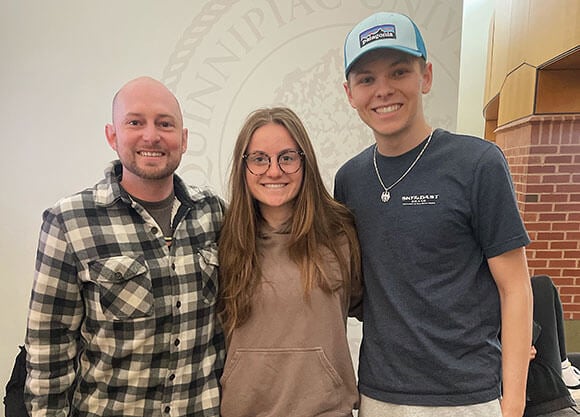Quinnipiac's Law in Society program approaches the study of law, legal processes and legal institutions in the tradition of the humanities. The classic values of a liberal arts education are combined with the critical thinking, analytical writing and oral presentation skills of the legal profession to prepare graduates to become active and thoughtful citizens in their local and global communities.
A humanities-based approach to studying law
A humanities-based approach to law exposes students to different methodologies and distinct approaches to understanding the law in our society. Our comprehensive curriculum introduces students to the foundational aspects of the field of law before challenging them to explore how the law shapes — and is shaped by — particular perspectives, historical contexts and actual practice.
As students navigate both required and elective courses, they master different methods of approaching and solving complex legal problems. Throughout the program, students will investigate the complexities of our legal systems; discover how civil and constitutional systems work; and learn to research, reason and write about the law. These skills will be sharpened beyond the classroom as students complete a professional internship and gain hands-on experience in a law setting.
The Law in Society major culminates in a senior capstone course, which provides the opportunity for students to complete independent research on a legal topic of their choosing and develop a thesis that draws from their coursework and their internship experience.














